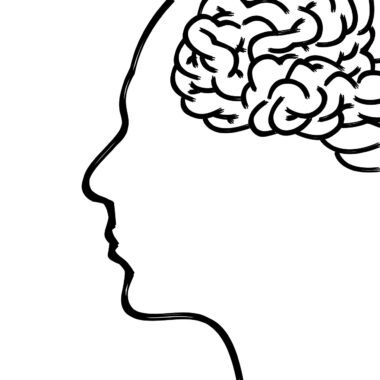How Self-Concept Influences Body Composition Choices
The concept of self-concept plays a pivotal role in determining body composition choices individuals make. Self-concept, defined as the perception one has of oneself, greatly influences various aspects of life, including health, fitness, and lifestyle choices. A positive self-concept often correlates with healthier body composition decisions, as individuals are more likely to engage in habits that affirm their self-worth. For instance, people who see themselves positively often prioritize activities like exercise and balanced diets, believing these behaviors enhance their self-image. Conversely, those with a negative self-concept may neglect their health, leading to poorer choices regarding nutrition and physical activity. This neglect can manifest in issues such as weight gain or other physical health concerns. Self-perception can also affect emotional well-being and motivation, ultimately impacting the decisions made concerning body composition. Therefore, an understanding of self-concept is essential for anyone looking to improve their body composition. Interventions aimed at boosting self-esteem could potentially help individuals make better choices regarding their body composition, leading to healthier outcomes, both physically and psychologically.
There are several factors that contribute to self-concept, including social interactions, personal experiences, and cultural beliefs. Each of these elements significantly shapes how individuals perceive their body image and, subsequently, their body composition. For example, societal pressure to conform to certain body ideals can greatly affect one’s self-perception. Often, media portrayals of beauty set unrealistic standards, leading individuals to feel inadequate. This, in turn, may redirect their focus towards harmful dieting practices or extreme exercise regimens. Consequently, individuals may exhibit behaviors that are counterproductive to achieving a healthy body composition. Moreover, ongoing social comparisons further exacerbate these feelings. When individuals consistently compare themselves to others, they may develop a skewed self-image that does not reflect their actual health status. This may lead to a cycle of negativity that discourages healthy choices. Awareness and critical reflection on these societal messages can counteract these influences. By acknowledging that body composition does not equate to self-worth, individuals can shift their focus towards sustainable, healthy practices that promote a positive self-concept and, ultimately, a healthy body composition.
The Role of Personal Experiences
Personal experiences are also integral in shaping one’s self-concept, particularly concerning body composition. Experiences during childhood and adolescence potentially have long-term effects on an individual’s relationship with their body. For example, teasing, bullying, or criticism related to weight or appearance can profoundly damage self-esteem, leading to unhealthy body image perceptions. Furthermore, positive experiences, such as praise for athletic achievements or compliments regarding appearance, can bolster self-confidence, prompting healthier lifestyle choices. As individuals navigate through life, their body composition decisions are often reflections of these accumulated experiences. Individuals with positive reinforcement may pursue fitness goals and prioritize nutrition more vigorously, seeing themselves engaged in activities that align with a healthy self-image. Conversely, those scarred by negative experiences may struggle with maintaining a balanced approach toward body composition. An integrative approach focusing on overcoming these past experiences through counseling or support groups can enhance individuals’ self-concept. This enhancement can create a paradigm shift, allowing for healthy body composition decisions that arise from self-love and acceptance rather than societal pressure.
A holistic understanding of self-concept also considers the relationship between mental health and body composition choices. Mental health issues such as anxiety and depression can adversely affect one’s motivation and ability to make informed decisions about health and fitness. Individuals may turn to food as a comfort mechanism, leading to negative body composition outcomes. Furthermore, distorted body image perceptions can perpetuate cycles of unhealthy eating or excessive exercise. It becomes crucial to address these mental health challenges when focusing on body composition. Therapeutic methods aimed at improving mental well-being can also enhance body image perception. Efforts like cognitive behavioral therapy may assist in reshaping negative thoughts and beliefs regarding one’s body, fostering a healthier self-concept. With a balanced mental state, individuals are often better equipped to approach body composition choices positively. They can establish healthier habits that are sustainable in the long run. Ultimately, addressing mental health is not just beneficial for emotional health but is equally pivotal for promoting physical well-being and achieving desired body composition goals.
Building a Positive Self-Image
To cultivate a healthy self-image, individuals can actively engage in practices that promote positive affirmations and self-acceptance. These practices can include mindfulness, journaling, or engaging with supportive communities. By embracing self-compassion, one is likely to view their body with kindness, fostering a healthier mindset towards body composition. It is important to celebrate small victories and recognize the role of physical health beyond appearance. For instance, focusing on energy levels, mental clarity, and life satisfaction can improve one’s overall health perspective. Building a network of supportive friends and family also plays a crucial role in reinforcing positive self-concepts. These social supports can offer encouragement and constructive feedback, contributing to a more balanced body image. Learning to challenge societal narratives surrounding body ideals can empower individuals to define their health metrics based on personal goals and values rather than external pressures. Hence, individuals can begin to cultivate a positive association with their body and see it as a vessel for life experiences rather than merely a reflection of societal standards. This foundational shift is essential in promoting healthier choices regarding body composition.
The influence of self-concept on body composition can also be seen in the context of goal-setting strategies. Clear, realistic, and affirming goals contribute positively to one’s self-image and encourage healthier behavior. Goals centered around well-being rather than appearance promote a holistic approach to health. For example, instead of aiming solely for weight loss, individuals could set objectives that involve enhancing physical fitness, energy levels, or overall health. This redirection of focus fosters an attitude that while body composition is important, it should not define self-worth. Engaging in group activities or joining fitness communities can also create a supportive environment for achieving personal goals. Shared experiences can increase accountability and motivation, allowing individuals to grow together on their journeys. A community that encourages progress rather than perfection can significantly shift perspectives on body composition, leading to better choices and healthier lifestyle habits. Therefore, goal-setting rooted in self-acceptance underscores the importance of a positive self-concept as a crucial ingredient in successful body composition efforts. Cultivating this mindset lays a foundation for long-lasting health improvements.
Conclusion: The Path Forward
In conclusion, understanding the relationship between self-concept and body composition choices is essential for individuals seeking to improve their physical health. It involves recognizing that body image is influenced by personal experiences, societal pressures, and emotional well-being. By fostering a positive self-image, individuals can empower themselves to make healthier choices regarding their body composition. Engaging in practices that improve mental health, setting realistic and affirming goals, and surrounding oneself with supportive communities are critical steps in this journey. It is vital to break free from destructive societal norms and instead embrace a holistic view of health that encompasses both physical and mental dimensions. As individuals learn to appreciate their bodies beyond mere aesthetics, they are more likely to engage in sustainable health practices. As a community, promoting body acceptance and positive self-concept will pave the way towards better health outcomes for everyone. Ultimately, creating a culture that advocates for self-love and acceptance can transform how individuals perceive their body composition choices, leading to healthier minds and bodies across the board.
Acknowledging this interconnection and prioritizing a blend of physical fitness, emotional stability, and self-acceptance is the key to a fulfilling and healthy lifestyle.





